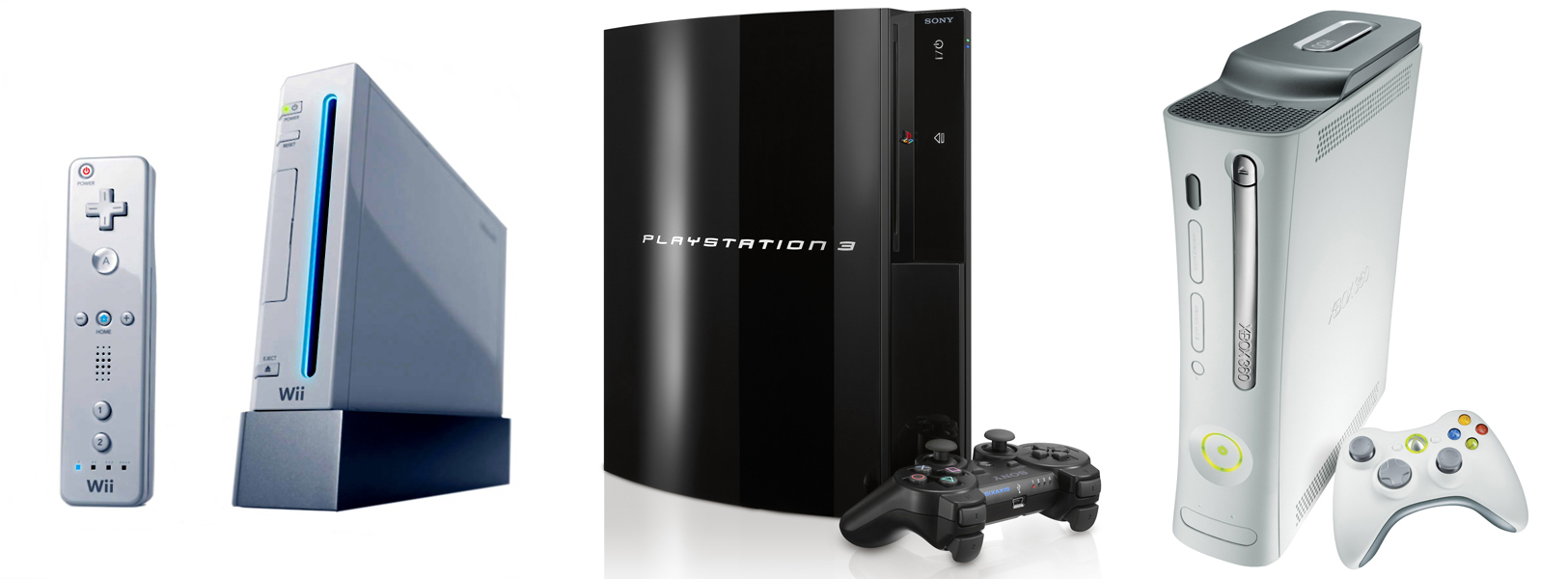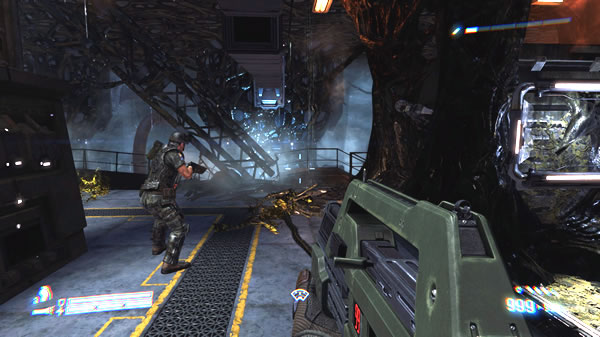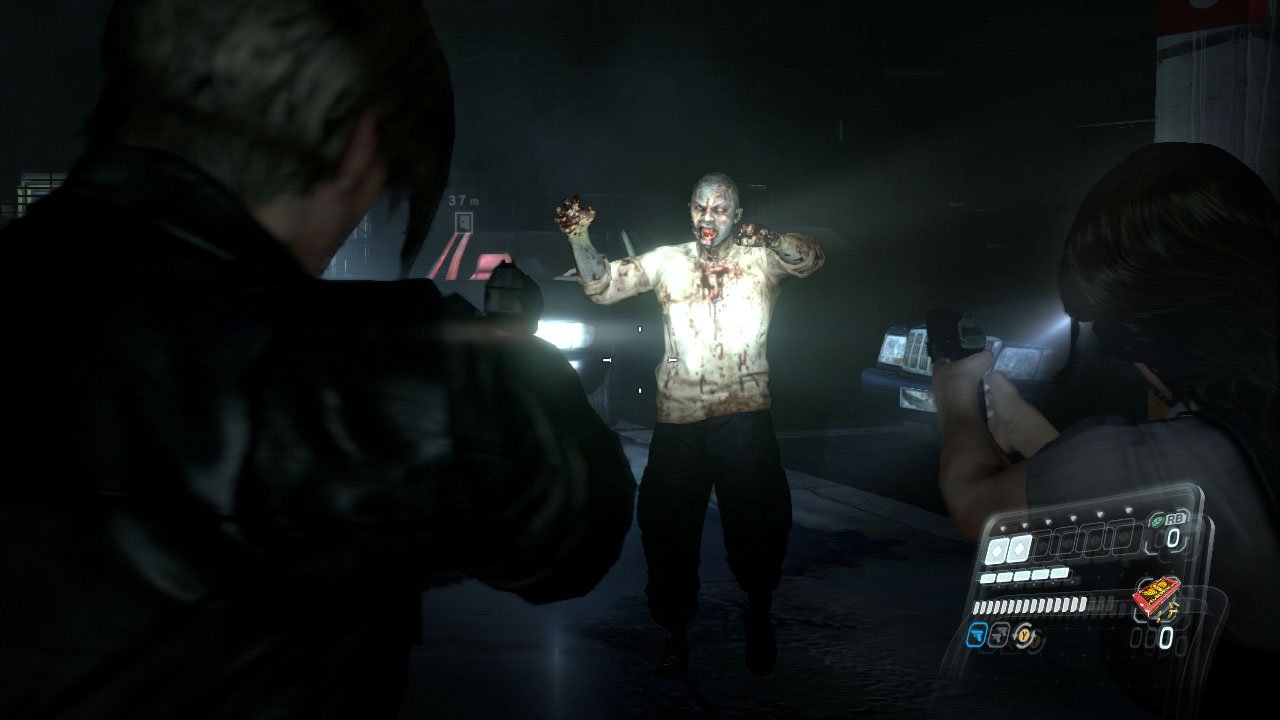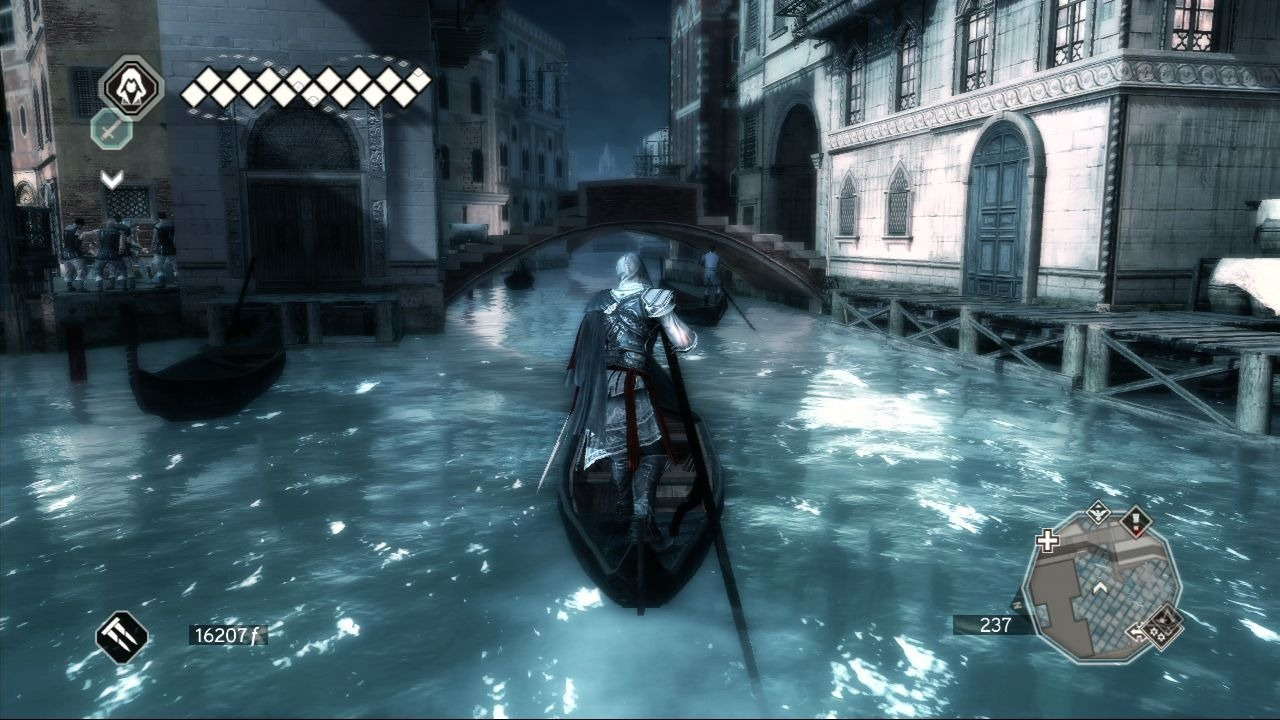With the Xbox One and PS4 launching last winter, the eighth generation of video games officially began in full. So it seems like now is as good as time as any to look back on the seventh generation and take stock. For me, the seventh gen was a mixed bag. There were many great games and great experiences, in no small part due to fierce competition among Sony, Nintendo, and Microsoft. But there were also bad business practices and many -- too many -- unfinished, buggy, and otherwise incomplete games released. All too often, consumers were treated as Beta testers for products soon to be patched, updated, or made whole with overpriced downloadable content. Equally frustrating were a handful of high-profile, hyped-up games that failed to deliver, either technically, mechanically, or both. Ten such games are listed below. These titles, although very different in terms of scale, scope, genre, and pedigree, all share one thing in common: they're among the most disappointing games of the seventh generation.
Denis Dyack and his team at Silicon Knights were once a force to be reckoned with. From 1996 to 2004 the studio developed three excellent games: Blood Omen, Eternal Darkness, and a Gamecube port of Metal Gear Solid. The team's follow-up, Too Human, was less impressive. Although the game features an original premise -- the Norse gods as cybernetically-enhanced supermen -- its linear level design and tedious gameplay turned what could have been a bold and original action RPG into just another mediocre game.
After 15 years in development hell, Duke Nukem Forever finally emerged in 2011. Having changed developers and publishers so many times, and stopping and starting for over a decade, Duke Nukem Forever was, perhaps, destined to fail. Technically and structurally, it represents a major step backward for first-person shooters. The action is flat and joyless; the graphics are muddy and blocky; and the script is humorless and misogynistic. In short, it's a train wreck.
No one would ever claim the original Conduit as a world-beater. It stands today as an unspectacular, straight-forward corridor shooter. But whereas the first game was a modest success with good gunplay, an interesting storyline, and excellent voice acting, the sequel is a jumble of undercooked ideas and mechanics with an incoherent storyline and some of the worst writing and voice acting of the past few generations.
The original Medal of Honor was one of the best first-person shooters of the fifth generation. It was atmospheric, it was smart, it was deep and varied, and, most importantly, it was fun to play. The Medal of Honor reboot in 2010 is anything but. It's a shame that Danger Close Games decided to make a Call of Duty knock-off instead of focusing on what made the early MoH games so enjoyable. Almost every idea in Medal of Honor has been borrowed from other series, most notably Battlefield and Call of Duty. It's all been done before, and done better.
Four-player co-op games are hard to come by. Great four-player co-op games, as evidenced by Operation Raccoon City, are even harder to come by. The game, which serves as a spin-off from the venerable survival-horror series, was best described by Audrey Drake at IGN as "...little more than a poor man's SOCOM, and a destitute man's Resident Evil." Bad shooting and cover mechanics, inconsistent AI, and boring, uninspired level design drag the game down. But it's the half-baked, non-canonical story and forgettable, interchangeable characters that spoil what was, in theory, a really great game.
Turok is a child of the fifth generation of video games, and perhaps that's where it should of stayed. The original trilogy, apart from an average third entry, was excellent; the spin-off Rage Wars was multiplayer mayhem at its finest. Then, in the sixth generation, came the massively disappointing Evolution, and after that, in 2008, a reboot. It's this reboot that's especially discouraging because, like Duke Nukem Forever, it strays far from the series' roots. It's safe, uninspired, and boring, with generic enemies and environments. It's just another below average shooter, a far cry from the challenging, surprising, and atmospheric games that represented the franchise once upon a time.
If Operation Raccoon City wasn't proof enough that four-player co-op games are capable of massive disappointment, look no further than Colonial Marines, another game with a good concept and rich mythology that suffers from technical, mechanical, and presentation problems. The single-player mode is dated, visually and mechanically; the story is more fan-fiction that anything; and the bugs and glitches are frequent and hilariously bad. Multiplayer options are surprisingly enjoyable, but they're not enough to save the overall package.
Many fans of the early Resident Evil games express disdain for Resident Evil 5 because the game is far more action-oriented than its predecessors, but at least it plays well. Resident Evil 6, conversely, plays like a wet dish towel. Featuring three campaigns, each of which follows a famous (or infamous) Resident Evil personality, RE6 is a long, substantial game. But it's also a frustrating and sometimes hollow game, one so packed with interactive cut-scenes and quick-time events that it feels, at times, like a game on auto-pilot. Capcom clearly invested more time and resources in presentation than in gameplay, and it shows.
The first Assassin's Creed was criticized for being repetitive and plodding, so Ubisoft attempted to fix these issues in the sequel by adding a larger, more open world with lots to do and see. While the world is undoubtedly bigger, the content inside is spread so thinly that much of the game is spent wandering from point A to point B, using Ubisoft's patented one-button-does-everything scheme. What's worse is that the content, once promised by the developers to be interesting side-missions and quests that added texture to the main campaign, somehow devolved into fetch quests and rooftop races.
How Killzone 2 earned a "most improved sequel" award is a complete mystery. It represents a significant step backward from the first game, which, incidentally, is one of the most underrated games of all time. Where Killzone was intelligent, thoughtful, and replete with interesting mechanics and scenarios, Killzone 2 is a dumb mess. The characters are poorly-written and unlikable, the story is contrived, and the gameplay is uninspired and generic. Killzone brings nothing to the table other than pretty graphics.
#10
Too Human
Denis Dyack and his team at Silicon Knights were once a force to be reckoned with. From 1996 to 2004 the studio developed three excellent games: Blood Omen, Eternal Darkness, and a Gamecube port of Metal Gear Solid. The team's follow-up, Too Human, was less impressive. Although the game features an original premise -- the Norse gods as cybernetically-enhanced supermen -- its linear level design and tedious gameplay turned what could have been a bold and original action RPG into just another mediocre game.
#9
Duke Nukem Forever
After 15 years in development hell, Duke Nukem Forever finally emerged in 2011. Having changed developers and publishers so many times, and stopping and starting for over a decade, Duke Nukem Forever was, perhaps, destined to fail. Technically and structurally, it represents a major step backward for first-person shooters. The action is flat and joyless; the graphics are muddy and blocky; and the script is humorless and misogynistic. In short, it's a train wreck.
#8
Conduit 2
No one would ever claim the original Conduit as a world-beater. It stands today as an unspectacular, straight-forward corridor shooter. But whereas the first game was a modest success with good gunplay, an interesting storyline, and excellent voice acting, the sequel is a jumble of undercooked ideas and mechanics with an incoherent storyline and some of the worst writing and voice acting of the past few generations.
#7
Medal of Honor
The original Medal of Honor was one of the best first-person shooters of the fifth generation. It was atmospheric, it was smart, it was deep and varied, and, most importantly, it was fun to play. The Medal of Honor reboot in 2010 is anything but. It's a shame that Danger Close Games decided to make a Call of Duty knock-off instead of focusing on what made the early MoH games so enjoyable. Almost every idea in Medal of Honor has been borrowed from other series, most notably Battlefield and Call of Duty. It's all been done before, and done better.
#6
Resident Evil: Operation Raccoon City
Four-player co-op games are hard to come by. Great four-player co-op games, as evidenced by Operation Raccoon City, are even harder to come by. The game, which serves as a spin-off from the venerable survival-horror series, was best described by Audrey Drake at IGN as "...little more than a poor man's SOCOM, and a destitute man's Resident Evil." Bad shooting and cover mechanics, inconsistent AI, and boring, uninspired level design drag the game down. But it's the half-baked, non-canonical story and forgettable, interchangeable characters that spoil what was, in theory, a really great game.
#5
Turok
#4
Aliens: Colonial Marines
If Operation Raccoon City wasn't proof enough that four-player co-op games are capable of massive disappointment, look no further than Colonial Marines, another game with a good concept and rich mythology that suffers from technical, mechanical, and presentation problems. The single-player mode is dated, visually and mechanically; the story is more fan-fiction that anything; and the bugs and glitches are frequent and hilariously bad. Multiplayer options are surprisingly enjoyable, but they're not enough to save the overall package.
#3
Resident Evil 6
Many fans of the early Resident Evil games express disdain for Resident Evil 5 because the game is far more action-oriented than its predecessors, but at least it plays well. Resident Evil 6, conversely, plays like a wet dish towel. Featuring three campaigns, each of which follows a famous (or infamous) Resident Evil personality, RE6 is a long, substantial game. But it's also a frustrating and sometimes hollow game, one so packed with interactive cut-scenes and quick-time events that it feels, at times, like a game on auto-pilot. Capcom clearly invested more time and resources in presentation than in gameplay, and it shows.
#2
Assassin's Creed II
The first Assassin's Creed was criticized for being repetitive and plodding, so Ubisoft attempted to fix these issues in the sequel by adding a larger, more open world with lots to do and see. While the world is undoubtedly bigger, the content inside is spread so thinly that much of the game is spent wandering from point A to point B, using Ubisoft's patented one-button-does-everything scheme. What's worse is that the content, once promised by the developers to be interesting side-missions and quests that added texture to the main campaign, somehow devolved into fetch quests and rooftop races.
#1
Killzone 2












No comments:
Post a Comment